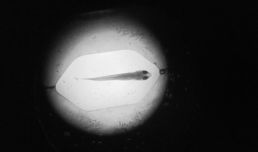We are pleased to welcome Qian Lin, who has joined us as Assistant Professor in CSB to work on systems neuroscience, at the intersection of computational biology and neurobiology. In her experiments, she observes neurons light up across the entire brain as zebrafish make decisions in order to understand how the brain generates complex behaviours. She observes that “The whole brain is involved in decision making, but where is the best place to start? I start by using the cerebellum as the entry point.”
Her work challenges assumptions of how decision-making and movement are related in the brain. The cerebellum was long viewed as being solely involved in motor control, but Prof Lin’s work and others have shown that there is no strict dualism of cognition and behaviour. Preparatory activity in the cerebellum is predictive of a decision to turn left or right, and of signals to take action.
Professor Lin reflects on this phenomenon as she learns a new punch or kick when practicing martial arts. She senses that the decision and the movement become closely linked and reflects on how this process occurs in her own brain.
An international scholar comfortable in China, Austria or the States, Lin grew up in the countryside of Hubei province. She would devour all the books in her home, at her neighbours’ homes and in the small school library. When she looked up from the pages of her Nature books, Lin would observe the animals all around her and wonder “What are they thinking about?”
As the first one in her extended family to start university, Lin had no single interest and thought she might follow her family into teaching. However, a field trip to Yunnan province revealed the great variety in biology as she gazed at the giant water lilies in Xishuangbanna Tropical Botanical Garden. She then applied herself to studies in structural biology, computational biology and neuroscience.
Lin left China in 2011 to start her PhD at the National University of Singapore supported by a NGS scholarship. The transition was difficult due to the culture and the language barrier of a new country. Her scholarship was dependent on maintaining good marks, which added to the stress of the transition. She was grateful that her supervisor Suresh Jesuthasan and labmates didn’t let her sit in the corner by herself doing experiments but invited her to join them and supported her studies.
Lin’s PhD lab used zebrafish as a model system to study sensory representation and behaviour. The transparent bodies of live zebrafish larvae allowed them to view the entire nervous system. Lin found herself imagining complex behaviour experiments while she studied the neurobiology of light processing.
“I find neural circuits fascinating as you can get close to understanding underlying neural mechanisms”, says Lin. “By acquiring quantitative results, you approach the idea of predicting what zebrafish will do. Since you can see each cell within the transparent body, you can target specific regions of the brain to change their behaviour.”
Lin chose Alipasha Vaziri’s lab in Vienna for her post-doctoral research using new optical neurotechnologies to study complex behaviours. Early days in the lab were a struggle, with no results from her zebrafish training during the first six months. There was added difficulty as the lab moved to New York. Over time and with perseverance, her results poured in and careful analysis resulted in a publication in the prestigious journal Cell: “Cerebellar Neurodynamics Predict Decision Timing and Outcome on the Single-Trial Level”.
Lin acknowledges that being a scientist can be emotionally draining due to the various challenges it entails. For her, the stress of working as a post-doc with a toddler while seeking a faculty position during the pandemic stands out. Lin emphasizes that it’s important that you don’t give up. She finds it best to relieve tension through physical activity like martial arts and finding challenges that keep you mentally sharp. Lin advises that as things become more difficult, you develop the competency to deal with them and at some point you won’t have to relive how hard it used to be.
 “My best decision was choosing an academic career,” Lin reveals. “With a PhD in neuroscience, I could have chosen to join industry as a data scientist or to continue in academia as a post-doc or professor. I chose academia because doing research is what I enjoy most.”
“My best decision was choosing an academic career,” Lin reveals. “With a PhD in neuroscience, I could have chosen to join industry as a data scientist or to continue in academia as a post-doc or professor. I chose academia because doing research is what I enjoy most.”
If you were to join Prof Lin’s lab as a student or post-doc, research would require some tool building of, for example, behavioural rigs, and would then occur on a weekly cycle: she prepares fish, images their brains and behaviour over 3 whole days, with two days for data analysis using code written in MatLab or Python. This all leads to a visualization of the process over time.
We are grateful that Prof Lin has chosen the Department of Cell & Systems Biology for her academic career. “I find Toronto to be chilly, but it is pleasantly quiet compared to New York. The neighbourhoods are very family friendly, with lots of nature and wildlife in the parks.” notes Lin. “My colleagues here have been generous with their protocols and with sharing their grant applications to help me to get my own funding.” We look forward to having her in the Department. Welcome!

